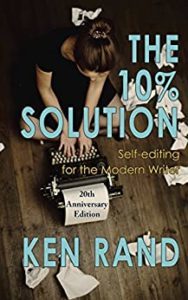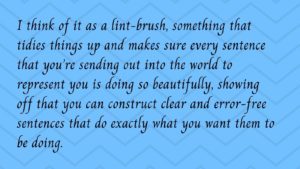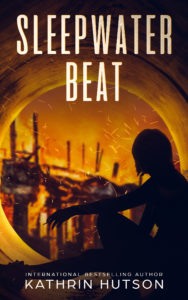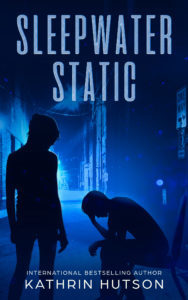Cat Rambo's Blog, page 13
December 11, 2020
Fiction Reading: Planet Crabby
This piece of flash fiction originally appeared in Asylum Magazine in 1990 and is the first piece of fiction that I published that was not in a school literary magazine or genre magazine.
December 9, 2020
Fiction Reading: Red Boot Blues
This is a short story that is a fairytale mash-up done for the anthology, Upon a Once Time, from Air and Nothingness Press. It combines two Hans Christian Andersen fairy tales, “The Red Shoes” and “The Girl Who Trod on a Loaf,” and tells them with a cyberpunk spin that turns hopepunk. It was influenced by Sarah Pinsker’s excellent class on applying songwriting techniques to your fiction.
December 8, 2020
Story Talk: Story Structure
I don’t believe that the standard form we get told all stories come from is the only one an author can use. In this video, I talk about some alternate plot structures and why I think an author should be aware of those alternate plot structures. You never know when one might come in handy!
December 7, 2020
Useful Gifts for Writers: The 10% Solution by Ken Rand
 This is the most useful book on writing I have ever found, and it’s the only one I will actually buy to give to people. I ended up writing the introduction to the 10th anniversary edition, because I know the publisher and, well, I’ll let that introduction tell its own story. The “Patrick” referred to in it is Patrick Swenson, the publisher who owns Fairwood Press.
This is the most useful book on writing I have ever found, and it’s the only one I will actually buy to give to people. I ended up writing the introduction to the 10th anniversary edition, because I know the publisher and, well, I’ll let that introduction tell its own story. The “Patrick” referred to in it is Patrick Swenson, the publisher who owns Fairwood Press.
For the past few years, I have been covertly getting people to go up to Patrick at conventions and ask when the electronic edition of this book would appear. Why? It might be that I have a prankish mind that was devoted to making him believe there was a vast groundswell awaiting this book. But actually, that’s the truth, because I’ve been pushing this book for years, less for prankish reasons than because I think it’s so useful for new writers.
The 10% Solution is not a cure to all your writing woes. It’s not a tool that helps with everything. But it is a great little book that will make you a better writer if you use it at the right stage in the process. The time to employ it is in that last pass before you send the story out into the world. I think of it as a lint-brush, something that tidies things up and makes sure every sentence that you’re sending out into the world to represent you is doing so beautifully, showing off that you can construct clear and error-free sentences that do exactly what you want them to be doing.
 I don’t remember the circumstances when I first ran across The 10% Solution, but I do know that since then I have given out multiple copies and recommended it to literally hundreds of people. Why? Because it works and effectively shows you how to polish a piece of work in a way that shows you are at the professional level. For not just fiction but nonfiction.
I don’t remember the circumstances when I first ran across The 10% Solution, but I do know that since then I have given out multiple copies and recommended it to literally hundreds of people. Why? Because it works and effectively shows you how to polish a piece of work in a way that shows you are at the professional level. For not just fiction but nonfiction.
Yes, it’s a pain in the butt. Yes, the first time you apply it to a manuscript it will be a huge pain in the rear end that may well lead you to curse aloud, calling down vile imprecations on my head. Yup and yup. I’ve been there too. But it’s worth it. After you’ve done it a few times, your unconscious mind gets tired of that labor and begins making changes before you write, tightening up and clarifying your prose in a way that will make it better.
Don’t believe me? Don’t try to apply it to a book then, but test it out with a short story or essay. Do give it a full chance, not skipping any steps, doing the actual “now I am searching on ly, now I am searching on of” steps. And keep a copy of the original, then look at them side by side. If your original prose is so golden that this didn’t substantially improve it, well then, perhaps this is not the book for you. But for the rest of us, it’s an awesome one.
Thank you, Patrick, for finally listening to all those people I kept sending up to you. I swear you won’t regret it. I know I won’t.
December 5, 2020
Useful Gifts for Writers: Various Kinds of Notebooks
 Buying a notebook for a writer? There’s so many to pick from, and you can opt for the one that best suits your recipient’s writerly type.
Buying a notebook for a writer? There’s so many to pick from, and you can opt for the one that best suits your recipient’s writerly type.
Writers who love the muse. Fancy leather-bound ones. Ones to write spells and incantations in. Ones that tie up with a leather cord and whose thick pages drink in the ink. There’s a ton of these on Etsy; here’s a particularly nifty-looking one.
Writers who like to make list may enjoy notebooks with graph paper. These are good notebooks for your list and bullet-point writer. Does this writer love spreadsheets? Give them this. Or if they’re a gamer, get them a hexagonal one.
Nostalgic writers may like notebooks that call up memories of classrooms and scrawled pencil writing. Notebooks that could have held treasure maps or lists of the books you wanted to buy from the Scholastic catalog. Here’s a supercute little one for the programmer in your life.
Artist’s sketchbooks for those lucky writers who can draw as well as write — or maybe who just love a big blank page. Get ones with high-quality paper, where ink won’t bleed through. These are for your doodlers, the people whose notebooks have little faces and flowers in the margin. Poke around and look at different sizes. Maybe get them something huge or else so tiny they can slip it in a pocket.
Notebooks for pen lovers are usually ones with paper that take inks well, but actually, just get them pens of their favorite kind. Or perhaps a nice holder so they can carry their beloved pens about.
Notebooks for those writers conscious of their literary posterity should be a bit more formal. Get them a lovely personalized notebook with their name embossed on the cover. Or make your own by buying a notebook and decorating it for them. Write little notes of encouragement in the margins. Tell them how much you love their stories, how much you want to read them.

December 4, 2020
Fiction Reading Lonesome Trail
This originally appeared in Sybil’s Garage, Issue number three, Spring 2006.
The piece of music referenced is Lucia Hwong’s “The Spell”.
December 3, 2020
Useful Gifts for Writers: Bookplates
With 2020’s vicissitudes, I haven’t been doing any book signings this year. I suspect 2021 will be much the same, which is one reason I’m getting book plates made for some of those upcoming books: one for the Tabat books, one for Carpe Glitter, and a very cool “Cat Rambo” one that combines some of the motifs and symbols important to me. In the meantime, I’ve picked up some simple bookplates to use.
Want to give one of my books to someone and include a special touch? Drop me an e-mail telling me who you want the bookplate made to, and which book you’re planning on putting it in, and I’ll put a signed bookplate in the mail to you. Or want it signed to you for one of the books you already have or are planning to acquire? I’m happy to do that too.
Want your own bookplates? I got mine through Bookplate Inc. I got some extra to stick in books I occasionally loan out; that way they may come back to me. I’m still trying to remember who I gave my collection of Zenna Henderson stories to.
Useful Gifts for Writers: Signed Bookplates
With 2020’s vicissitudes, I haven’t been doing any book signings this year. I suspect 2021 will be much the same, which is one reason I’m getting book plates made for some of those upcoming books: one for the Tabat books, one for Carpe Glitter, and a very cool “Cat Rambo” one that combines some of the motifs and symbols important to me. In the meantime, I’ve picked up some simple bookplates to use.
Want to give one of my books to someone and include a special touch? Drop me an e-mail telling me who you want the bookplate made to, and which book you’re planning on putting it in, and I’ll put a signed bookplate in the mail to you. Or want it signed to you for one of the books you already have or are planning to acquire? I’m happy to do that too.
Want your own bookplates? I got mine through Bookplate Inc. I got some extra to stick in books I occasionally loan out; that way they may come back to me. I’m still trying to remember who I gave my collection of Zenna Henderson stories to.
December 2, 2020
Using SFWA Effectively for Book Publicity
People sometimes ask whether or not the membership fee for the Science Fiction & Fantasy Writers of America is worth it. I think it is, but mileage will vary. That mileage is certainly dependent on how effectively you use it. So here’s a sample action plan I’m putting together for my next book.
4-6 months ahead of time
Look to see what upcoming events, such as local reading series, conferences, and conventions work with your schedule. For example, if your book were being released in May, you might want to supply some ARCs for the Nebula Conference swag bags. Or if you’re in the Pacific Northwest area, you might contact the local organizers of the readings series in order to set up a reading.
Scan the SFWA blog to see what things there might spark good promotion ideas. Here’s something I wrote about working comic conventions that might have some useful reminders. Here’s another on book promotion giveaways.
2-3 months ahead of time
Submit for the New Release Newsletter; perhaps think about paying extra for the special focus slot.
Think about pitching the SFWA Blog a related article.
Get the book listed as a featured book.
Look at the SFWA boards to see if there’s any upcoming cooperative efforts you might become part of, or propose your own, along the lines of “Hey, I’ve got a book coming out on this date, anyone else got something coming out around then that wants to coordinate publicity?
1 month ahead of time
Get book up for NetGalley.
If you’re doing that cooperative effort, make sure all your items are lined up!
The day of the release
Make sure you say something on your personal thread in the Discussion Forums so people know to spread the word! Give them as many resources to do so as you can, such as supplying a graphic or a pre-composed tweet.
Tag @SFWA in a tweet or two to get them to RT it.
After the release
Keep an eye open for the next SFWA Storybundle; they appear every six months or so.
Make sure there are copies in .mobi, .epub, and .pdf forms in the appropriate forums on the discussion boards if you want members to be able to read it when thinking about making Nebula nominations.
List the work on the Nebula Reading list. It’s okay to put your own work up there.
Guest Post: Asking for What We Want in Our Lives – And What We Deserve in Literature by Kathrin Hutson
Kathrin Hutson
We are not defined by our mistakes, and we deserve to reach beyond our dreams until they become reality.
This is a pervading theme in everything I write, morphed into various forms through story and character but no less poignant from book to book. It’s an incredibly important message I strive to offer my readers in whatever different flavor each story brings, because it’s a message I have lived through personally. And I know I’m not the only one.
 As a wife, a mother, and a queer female author navigating the literary world and supporting my family solely by writing fiction, I’ve struggled for some time to find the balance between meeting needs and fulfilling wishes. For years, I operated under the belief that what I needed, what I wanted, and what I deserved were three very different things within my personal life. Trying to visualize and actualize all three was a feat tossed even farther to the winds when I struggled through an active heroin addiction in my late teens and early twenties.
As a wife, a mother, and a queer female author navigating the literary world and supporting my family solely by writing fiction, I’ve struggled for some time to find the balance between meeting needs and fulfilling wishes. For years, I operated under the belief that what I needed, what I wanted, and what I deserved were three very different things within my personal life. Trying to visualize and actualize all three was a feat tossed even farther to the winds when I struggled through an active heroin addiction in my late teens and early twenties.
I’d drawn reality and dreams so far apart from each other that only the idea of meeting my immediate needs seemed even remotely attainable. I needed to recover and rebuild my life. I needed food, shelter, comfort, community, sanity.
What I wanted and what I thought I deserved after moving through one of the roughest patches of my life over ten years ago now were two entirely different things. I wanted to be successful. I wanted to write. And I believed I no longer deserved to lose myself in the magic of writing fiction because of the mistakes I’d made, the people I’d harmed, the fear and heartache and discouragement I’d sown in myself and in others. For four years after finally getting clean and on my road to recovery, I carried with me the immense weight of wanting to write—of dreaming about writing again to my heart’s content the way I had when I first discovered my passion for it—and simultaneously believing that what I wanted was no longer within the realm of what I’d earned. What I deserved.
I hardly picked up a book to read for pleasure when I was an addict. I’d turned away from the healthy outlets I’d honed by necessity as a child and an adolescent and a teenager. And while it took me four years to start writing again, it still took me almost a year to allow myself to pick up a book and start reading again purely for the enjoyment of it.
What I found when I dove into fiction again might as well have been a newly discovered world, as if I’d just learned to read for the first time and was seeing everything again with brand-new eyes. I rediscovered the brilliance of my previous favorite authors in Stephen King’s The Dark Tower series and Neil Gaiman’s The Sandman graphic novels. And I found others who stoked a new curiosity in me about myself and the way I wanted to operate within this world after having been given a second chance at life and working so hard not to squander it.
Jacqueline Carey’s Kushiel Legacy series carried with it the new possibilities of diving into one’s purpose and fluidly acclimating to it without giving up or giving in. “That which yields is not always weak” (Jacqueline Carey, Kushiel’s Dart).
Margaret Atwood’s The Handmaid’s Tale illuminated a deeper understanding of what personal strength entails, when an individual’s needs aren’t anywhere close to what a human being deserves and are in fact pitted against basic human rights. “I am not your justification for existence” (Margaret Atwood, The Handmaid’s Tale).
Octavia Butler’s Patternmaster revealed my first glimpse of awareness that I wasn’t alone in my inability to mold myself to any number of binary definitions—as a recovering addict, as a writer who hadn’t touched a word of fiction in years, as a queer person, as an adult struggling through life without the experiential knowledge of how most people perceived a “natural progression” without having screwed it all up first. “Most people who ask want me definitely on one side or the other” (Octavia E. Butler, Patternmaster).
When I did finally start writing again, I did so with zero expectations and a hesitant shyness, not of what others might think of me for writing again but of how disappointed I thought I would be in myself. That if I strived for what I wanted and it wasn’t in fact what I deserved, I would have lost the single defining aspect of myself I’d carried with me since I was ten years old—Kathrin as a writer and nothing more.
What I found when I dove back into a freshly unexplored wealth of experiences I now had to draw from was that I could more easily create what I wanted to see in fiction than what I felt I deserved to receive from a life worth living. The first book I wrote after my four-year hiatus, Sleepwater Beat, became not only my first venture into LGBTQ+ fiction with queer characters at the forefront but also the first truly raw piece of fiction that exposed to myself and the entire world who I really am. As Dystopian fiction so often does, this book highlighted the things I saw in society, all while I wondered if I was the only one who saw them and simultaneously hoped I was not.
I wanted to see strength and hope blazing beneath a gritty top layer of darkness, despair, bigotry, xenophobia, and injustice. Just as I’d seen it, somehow, through the darkness of my active addiction and the underbelly of society exposed to me as a result. I wanted to see characters like myself—those who were not defined by their mistakes, their pasts, their upbringing, their race, their sexual orientation, or their truest identity but who did not hide from the value each piece of themselves provided to the whole. Those who had absolutely no idea what they were doing beyond the fact that giving up simply wasn’t an option. Those who could stare their own demons in the face—either by choice or by necessity—and carry on no matter the consequences.
 After Sleepwater Beat became an international bestseller in 2019 and then what is now the first book in the Blue Helix series, I realized how much easier it was for me to ask for what I wanted in fiction than what I wanted in my own life. The more I realized I was not the outlier in wanting to see more characters like me within the pages of speculative fiction, including Dystopian Sci-Fi and Grimdark Fantasy, the more I came to understand that this stretched so much farther beyond myself.
After Sleepwater Beat became an international bestseller in 2019 and then what is now the first book in the Blue Helix series, I realized how much easier it was for me to ask for what I wanted in fiction than what I wanted in my own life. The more I realized I was not the outlier in wanting to see more characters like me within the pages of speculative fiction, including Dystopian Sci-Fi and Grimdark Fantasy, the more I came to understand that this stretched so much farther beyond myself.
Yes, I write what I know. So much of what I know is a long line of having defined myself by all the “wrong decisions,” the “bad mistakes,” the “inability to conform.” And the more I heard from readers who picked up my stories, the more I learned that I was writing what we deserve to see of ourselves within the context of fictional worlds, or eerily paralleled versions of our own reality, or the “unexposed underbelly” of society. Within the context of identity, shared experiences, real and raw interpersonal relationships, and the too-often glazed-over horrors of isolation and alienation instead of belonging.
As a result, I’ve grown so much more aware of what it means to pursue what I want and need and deserve as an individual person within my own life. These things aren’t mutually exclusive, and one is not more important than the other when we’re navigating the obstacles tossed into our paths. Now, I write because I want to and because I deserve to fulfill that desire with the gifts I was given and my own obstacles turned opportunities. I write because I want to see the types of stories, darkness, struggle, pain, hope, and breaking down of barriers and stereotypes that people like me deserve to see reflected from within such stories.
It’s so much easier to write what I dream of in fiction. But when I do, asking for the things in life that bring me abundance, joy, peace, and a sense of purpose through the one thing I know I was born to do becomes that much less difficult along the way.
 International Bestselling Author Kathrin Hutson has been writing Dark Fantasy, Sci-Fi, and LGBTQ Speculative Fiction since 2000. With her wildly messed-up heroes, excruciating circumstances, impossible decisions, and Happily Never Afters, she’s a firm believer in piling on the intense action, showing a little character skin, and never skimping on violent means to bloody ends.
International Bestselling Author Kathrin Hutson has been writing Dark Fantasy, Sci-Fi, and LGBTQ Speculative Fiction since 2000. With her wildly messed-up heroes, excruciating circumstances, impossible decisions, and Happily Never Afters, she’s a firm believer in piling on the intense action, showing a little character skin, and never skimping on violent means to bloody ends.
In addition to writing her own dark and enchanting fiction, Kathrin spends the other half of her time as a fiction ghostwriter of almost every genre and as Fiction Co-Editor for Burlington’s Mud Season Review. She is an active member of both the Science Fiction and Fantasy Writers of America and the Horror Writers Association. Kathrin lives in Colorado with her husband, their young daughter, and their two dogs, Sadie and Brucewillis.
For updates on new releases, exclusive deals, and dark surprises you won’t find anywhere else, sign up to Kathrin’s newsletter.
Website: KathrinHutsonFiction.com
Email: Author@kathrinhutsonfiction.com
Facebook.com/KathrinHutsonFiction
Twitter: @ExquisitelyDark
Instagram: @KathrinHutsonFiction
If you’re an author or other fantasy and science fiction creative, and want to do a guest blog post, please check out the guest blog post guidelines. Or if you’re looking for community from other F&SF writers, sign up for the Rambo Academy for Wayward Writers Critclub!




